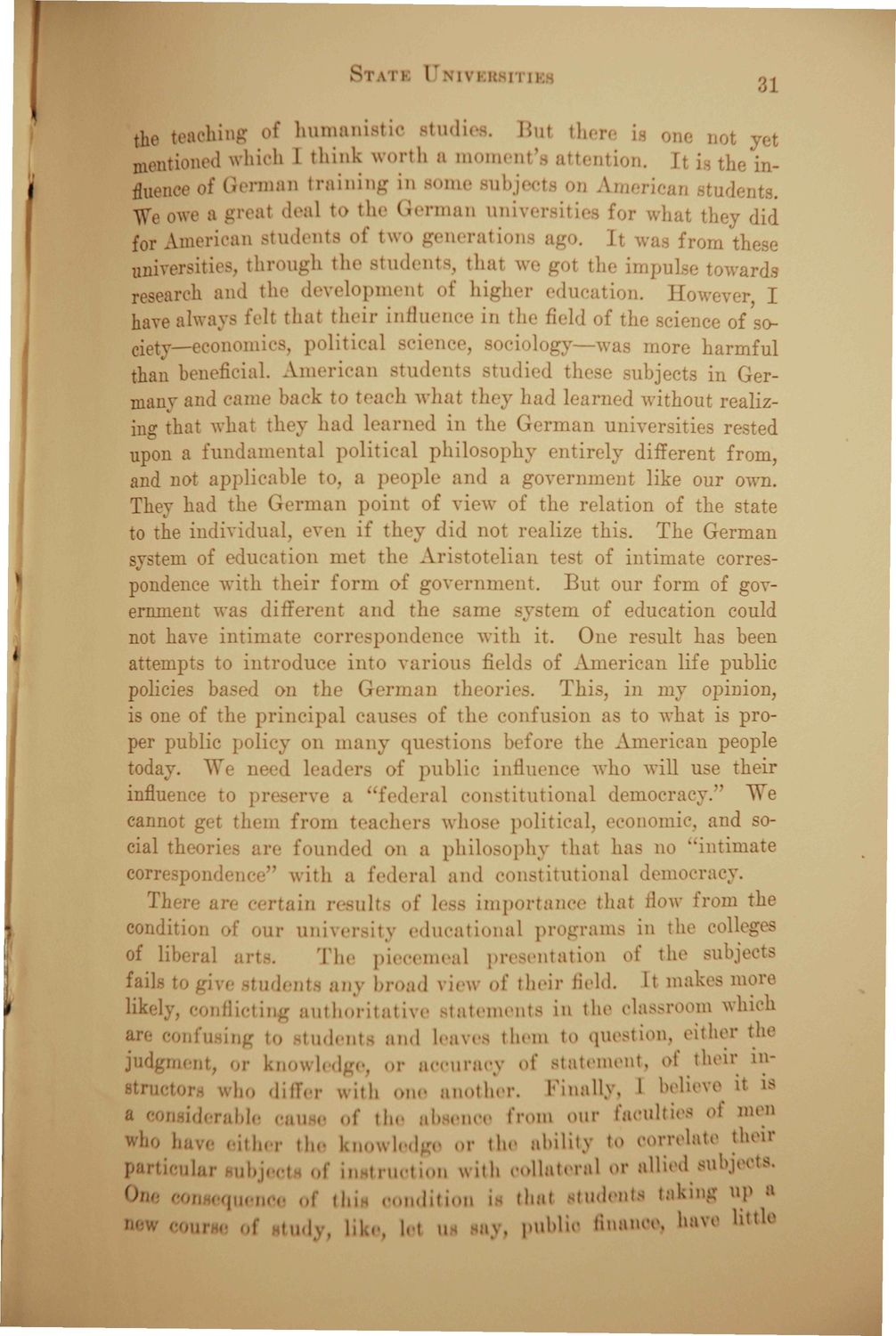| |
| |
Caption: Booklet - Kinley Speech Cirrculum and Consequences (1924)
This is a reduced-resolution page image for fast online browsing.

EXTRACTED TEXT FROM PAGE:
STAT1 D MVI.i: I 1 IKS nj the teaching of humanistic studio. Bui there U one not yet mentioned which 1 think worth a m o m e n t attention. I- i te influence of G rman training in some subjects on American tudei i. -ft? owe a great deal to tie i lerman universitie for what they did for American students of two generations a >. It wi i'v these university through tie students, that we got the impul ward research and the development of higher education. However I havealwaysi It that their influence in th< fieldofthe nee of >ogy—w more harmful ciety than beneficial. American students studied th • subjects in Germany and came back to teach what they had 1 irned without realizing that what they had learned in the German universities rested upon a fundamental political philosophy entirely different from, and not applicable to, a people and a government like our own. They had the German point of view of the relation of the state to the individual even if they did not realize this. The German svstem of education met the Aristotelian test of intimate correspondenee with their form of government. But our form of gov•mn not have intimate correspondence with it. One result has been attempts to introduce into various fields of American life public policies based on the German theories. This, in my opinion, is one of the principal cans of the confusion as to what is proper public policy on many questions before the American people today. We need leaders of public influenc who will use their u influence to pi rve a i'v(\ al constitutional democracy." We cannot get them from teachers whose political, economic, and social th are founded on a philosophy that has no "intimate correspon ince" with a federal and constitutional democracy. The] are certain result of less importance that flow from the condition of our univei Lty educati nal programs in the colleges f liberal arl . The piecemeal presentation of the subjects fails to giv( Indents any broad view of their held. It makes more likely, conflictin authoritative statements in the classroom which ar confusing to studem and leaves them to question, either the judgment, or knowledge, or accuracy of statement, oi their ins tow who differ with one another. Finally, I believe i1 ia a considerable cause of the aWnoe i>'""> our faculties ol men who bav< ither the knowl< Ige or the ability to correlate their particulai ibji I of inatruotion with collateral or allied subjects. One oonsequen of this i lition is thai students takinj up s " v course of itudj lil lot un nay, public ftnanoe, have littlo
| |